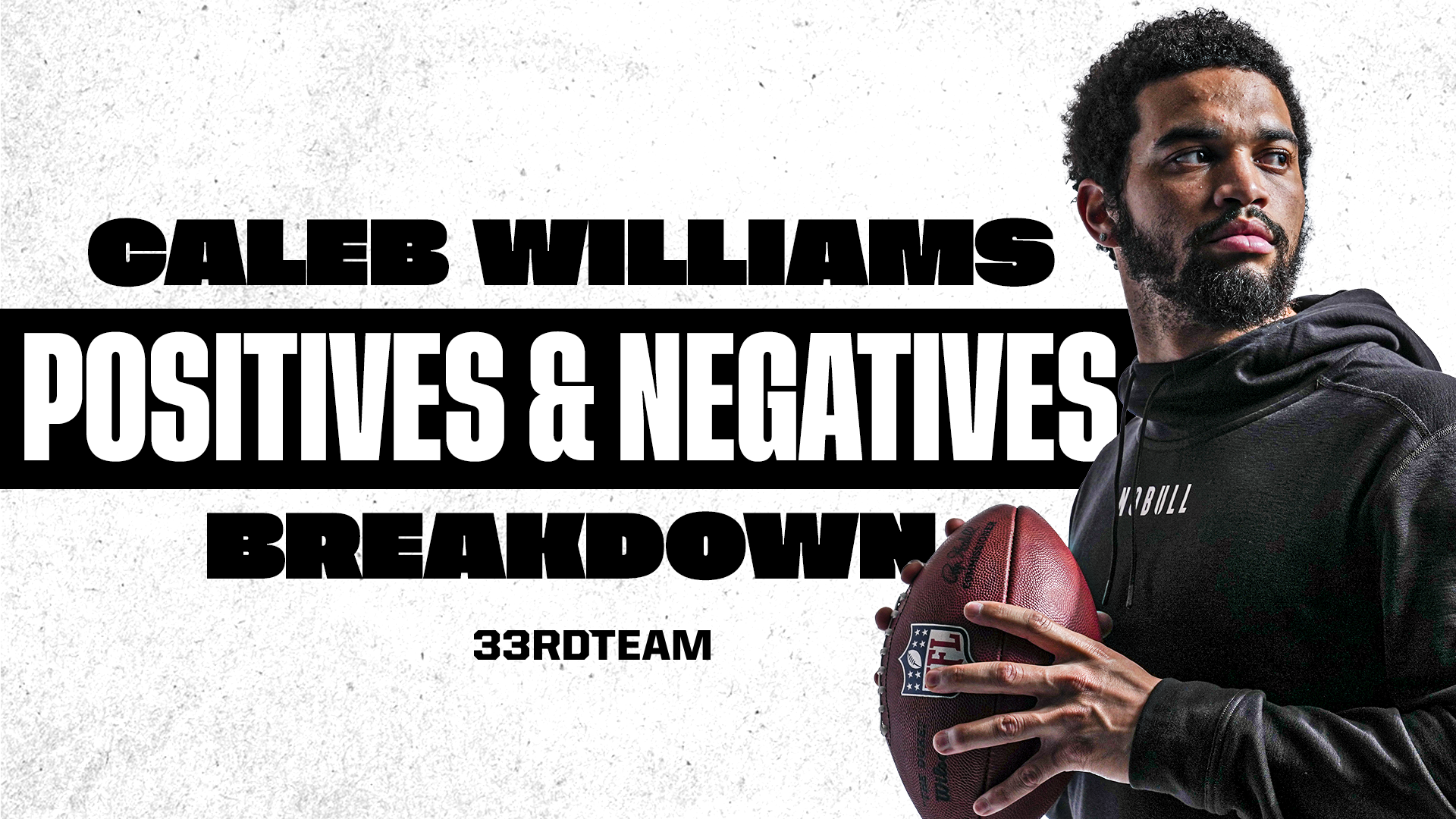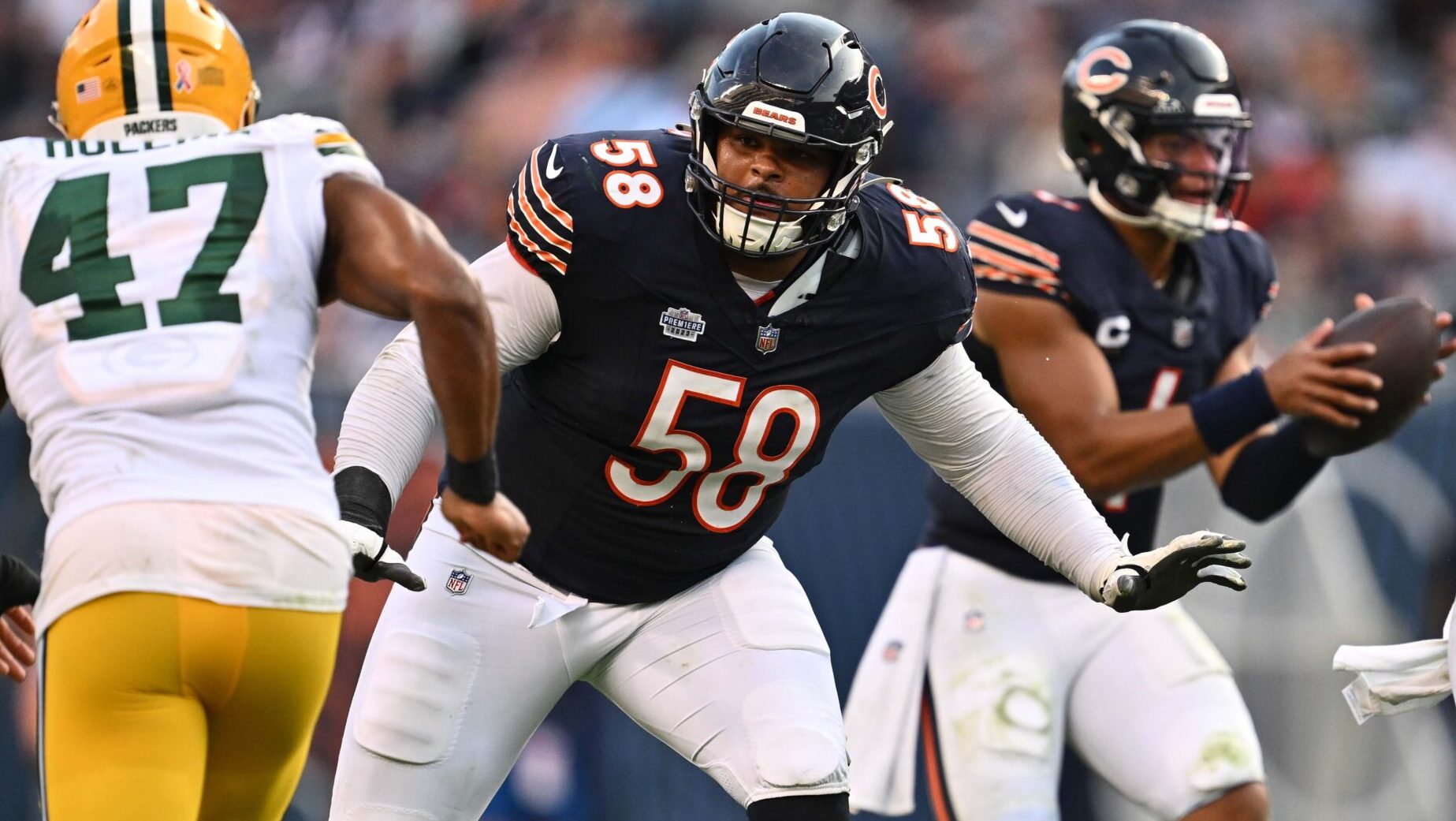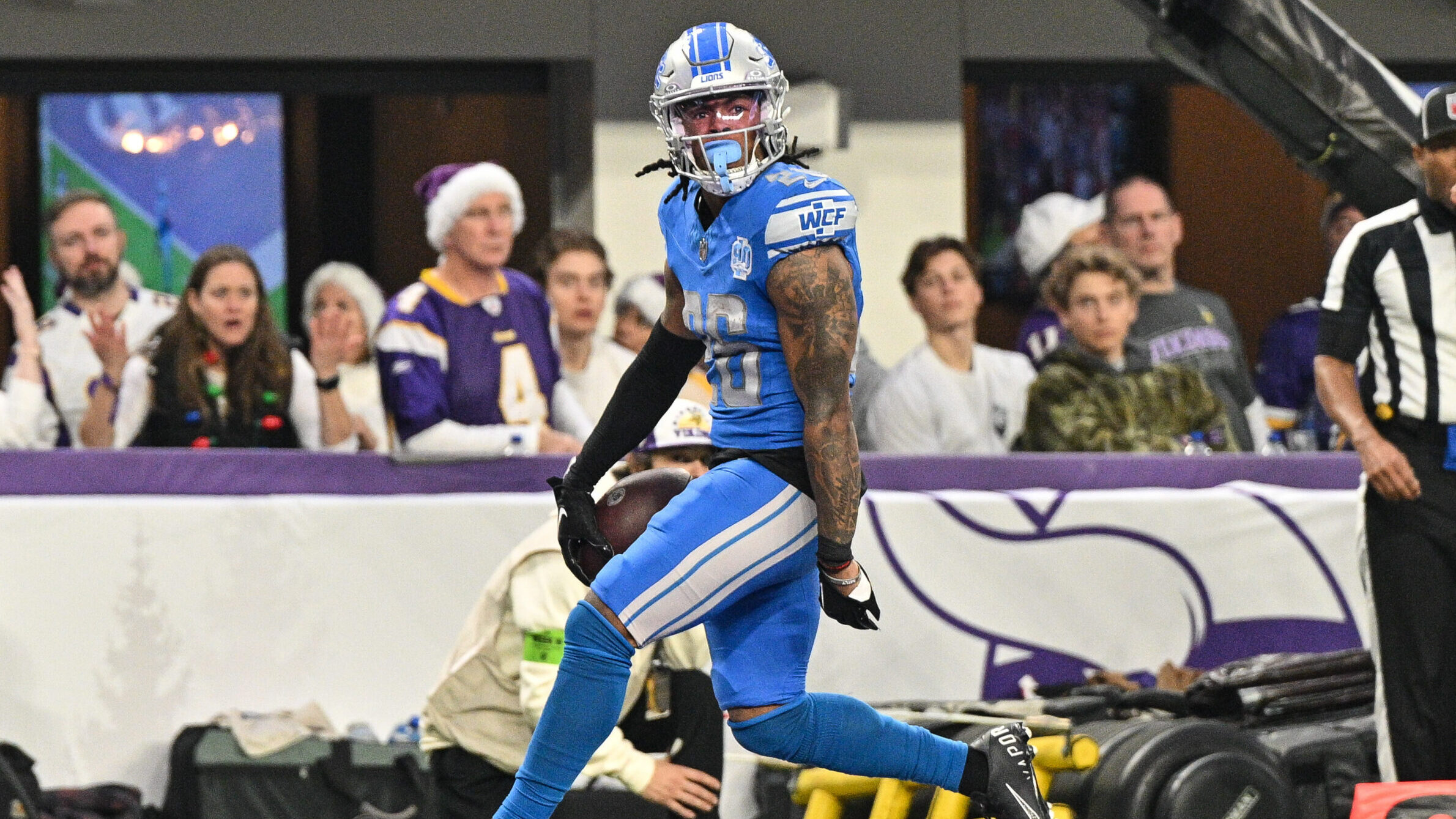Analysis
2/18/22
5 min read
Deep Dive: The Background of Successful NFL Head Coaches
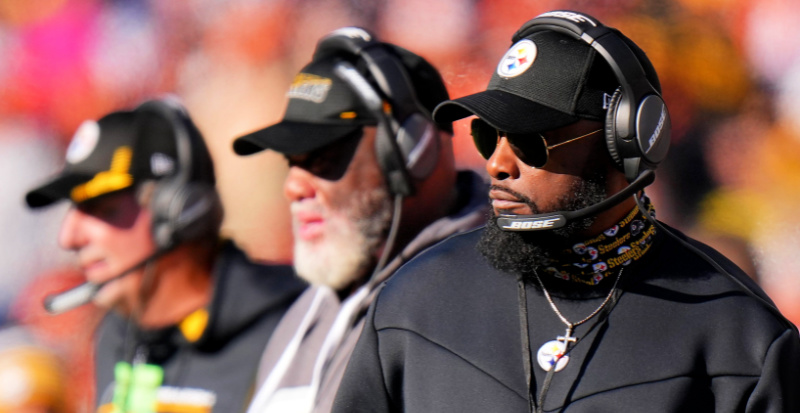
Since 2002, we’ve seen 130 different men given the full-time opportunity to lead an NFL team from the sidelines. With a trio (John Fox, Mike Mularkey and Lovie Smith) hosting three distinct tenures, and another 25 receiving two, there have been 159 total head coaching tenures over that span, counting the pre-2002 hires that extended into our span, but not interim coaches. From Bill Belichick’s 395 games (and counting) to the 13-game spans of Bobby Petrino and Urban Meyer, we’ve cataloged the background of each at the time of their hire to see if any similarities appear between successful coaches.
First, what are the overall averages of head coaching hires? At an average age of 48.1, we find that 56.6% of HCs have come from an offensive background and 86.2% directly from an NFL role that they had spent an average of 3.8 years in.
Although only 32 (20.1%) had any experience coaching special teams at all, those 32 averaged 4.7 years in their role prior to being named head coach.
Nearly all (89.3%) had prior coordinating experience, including 76.7% at the NFL level, but only 80 had previously been a head coach.
An overwhelming 96.2% of NFL head coaches since 2002 played in college, yet only a third progressed to the NFL level. Once they got there, however, that third averaged 7.5 years playing in the league, from Jason Garrett’s 16 seasons to the single years of a group including Sean Payton. Once they were hired, here’s how their tenure lengths changed over time, excluding current HCs:
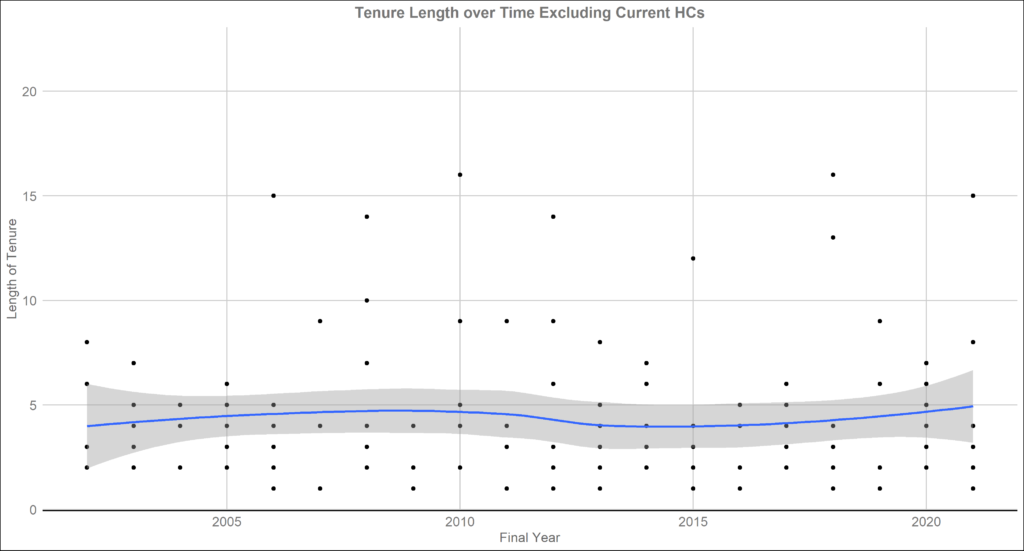
So, what did we find? By looking at average wins per season, including playoffs, we can estimate how successful a coach’s tenure was. It is by no means perfect, especially when comparing two specific coaches, but it does strongly differentiate in a more general manner. This does slightly favor 2021 coaches because of the 17-game regular season, so we can account for that by adjusting wins in the 2021 regular season. For example, Sean McDermott’s most recent campaign would count as 11.35 wins – one for the playoffs, and 10.35 for the regular season because his 64.7% win rate this year would translate to that many wins over a 16-game schedule.
Starting with age, here’s what we find:
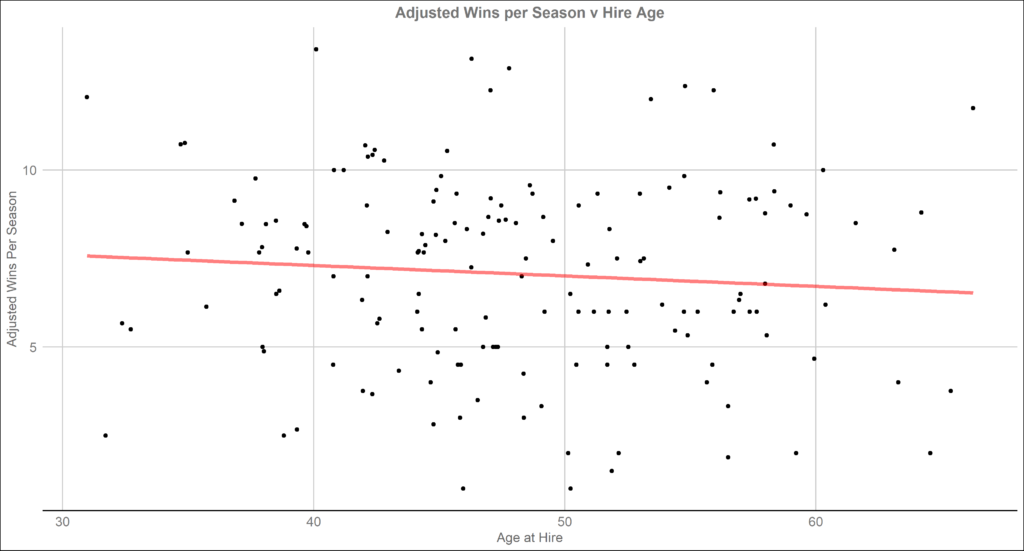
Surprisingly, younger coaches actually are slightly more successful, but don’t go hiring 20-year-olds just yet — it’s only a small relationship.
In fact, both the youngest (Sean McVay) and oldest (Bruce Arians) have won Super Bowls. If anything, the astounding success of some of the younger coaches hired, such as Bill Cowher and Mike Tomlin, may be skewing the data.
What about the date of hire? Hotshot coaches in high demand like Nick Saban and Kansas City’s Andy Reid are quickly snapped up, but do they fare better than names such as Bill Parcells (DAL), Norv Turner (SD), and Frank Reich (IND) who sign months later?
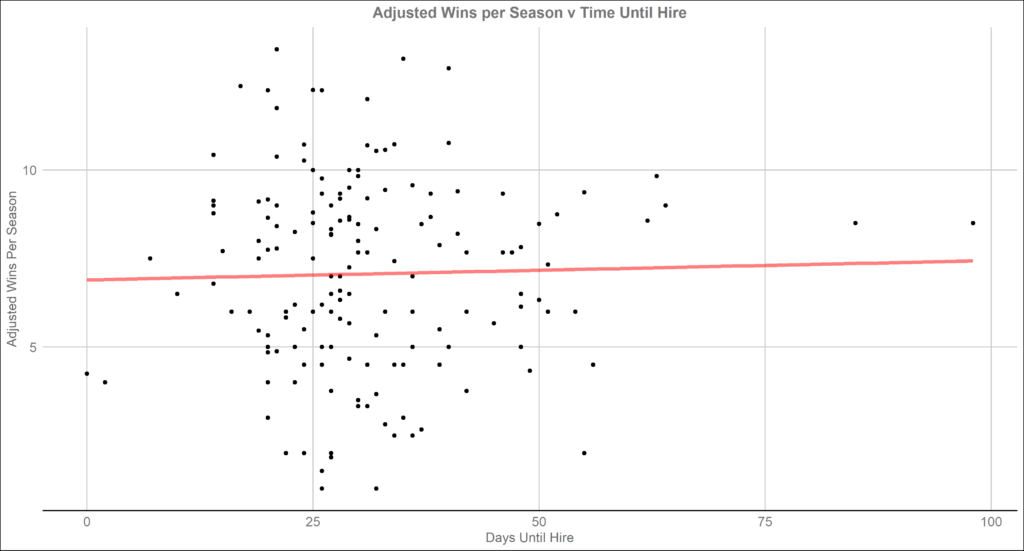
In a word, no. While you certainly want to do your due diligence, there doesn’t seem to be much difference in striking while the iron is hot or taking your time.
Let’s run through a few more:
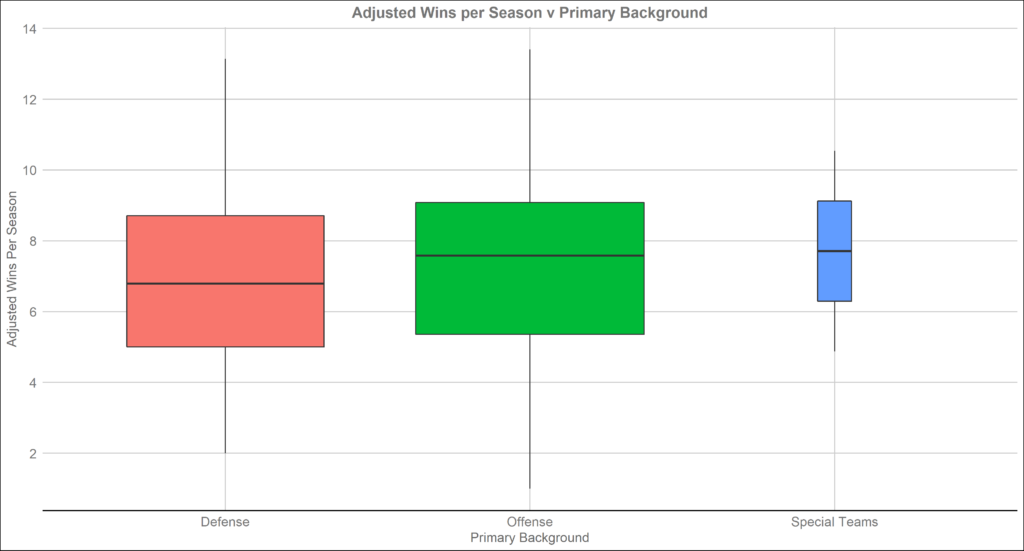
When answering the question of whether to hire a coach with experience on the offensive or defensive side of the ball, don’t forget about special teams. While there isn’t a correlation between previous years of special teams experience and adjusted wins per season, we do see that the few coaches to specialize in special teams have, along with offensive-background coaches, been somewhat more successful than their defensive counterparts despite far fewer hires.
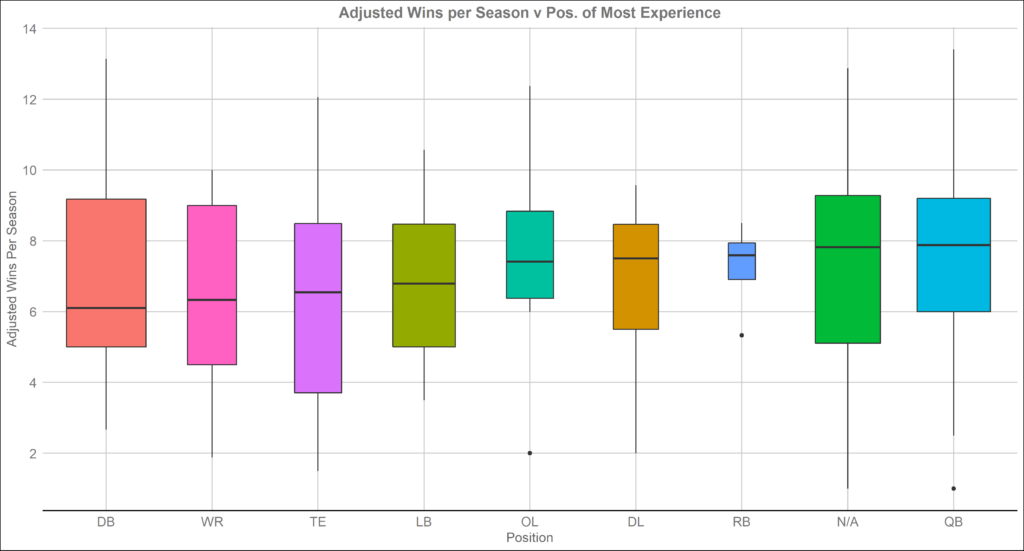
Broken down into the position they coached for the most years, it’s interesting to see “N/A” fall behind only quarterback. What is that? Coaches who didn’t specialize in a specific position, such as Bill Belichick or Mike and Kyle Shanahan, were right on par with the QB coaches.
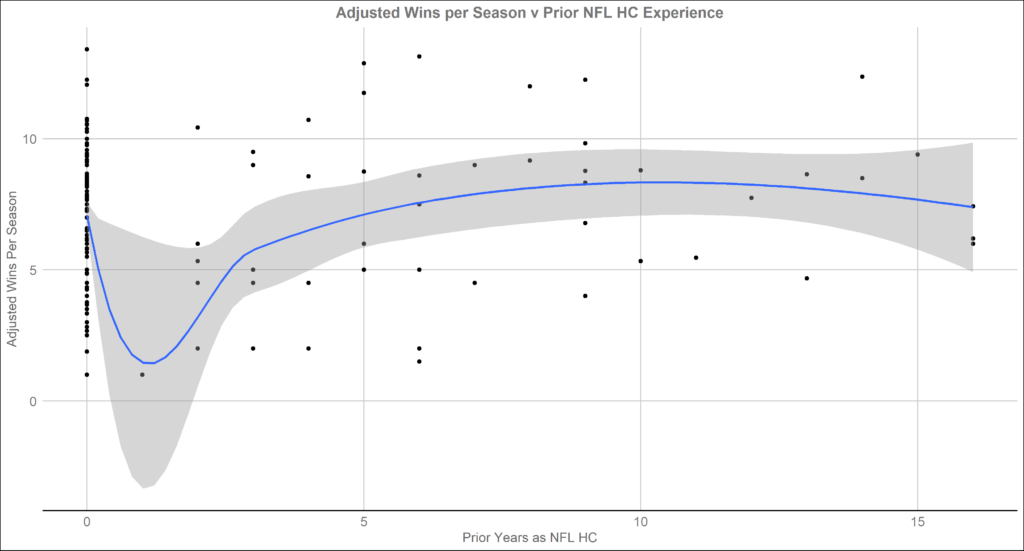
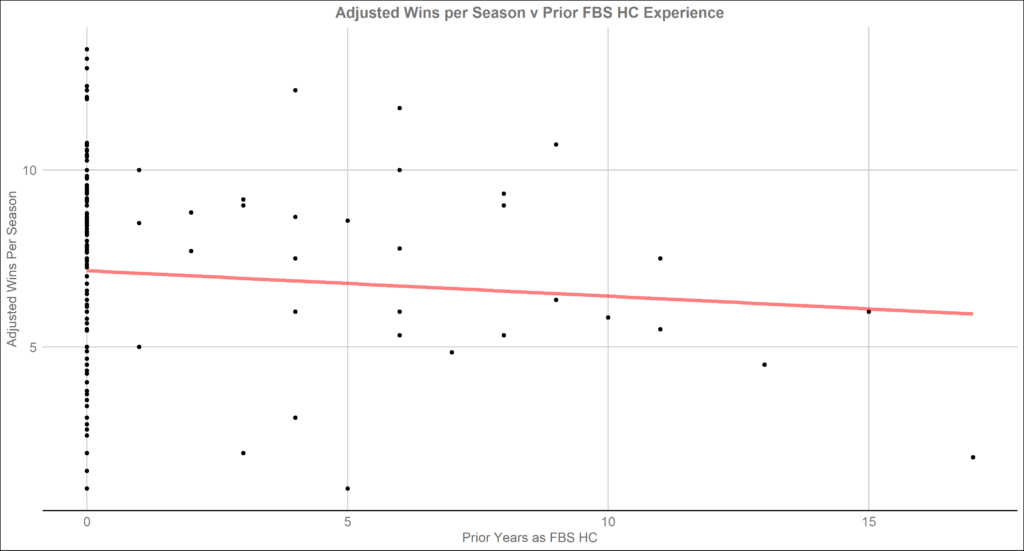
It’s difficult to lead a team for the first time, so considering whether a potential coach has HC experience is important. However, we find a difference between NFL and collegiate head coaching experience.
Hiring a coach who has previously been an NFL HC brings with it a higher floor, but FBS experience doesn’t have the same effect. While the majority of HCs haven’t filled that same role in college, it seems like those who remain among the college ranks for too long don’t reach the same heights in the pros.
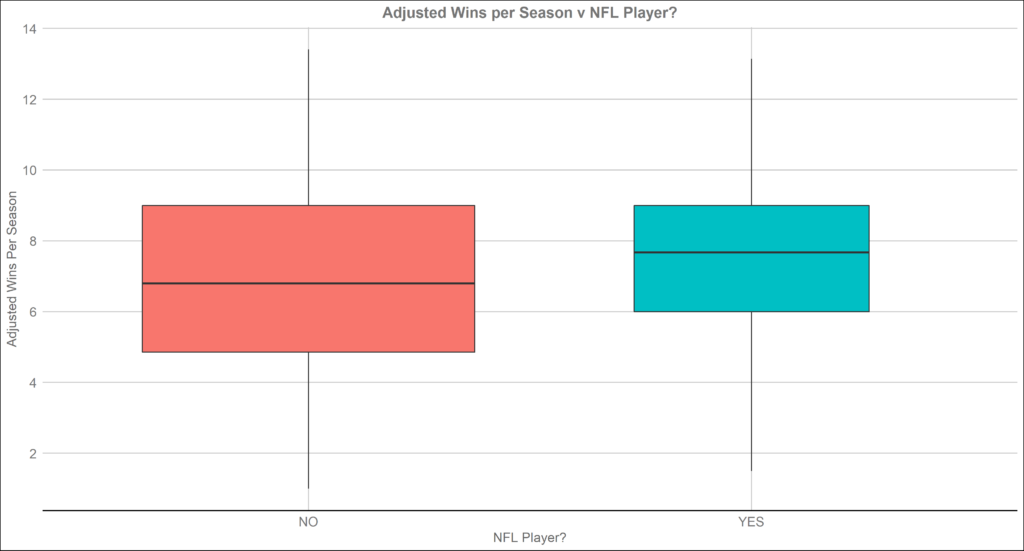
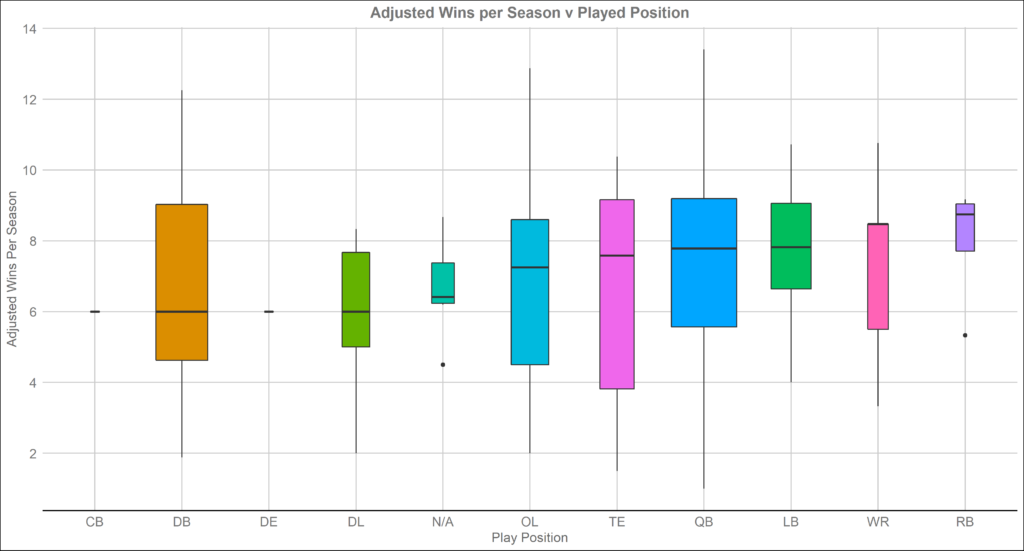
As the final note, HCs who were former NFL players do see slightly more success than those who never made it to the top level, but the positions they played are what we would expect to see — with one exception.
Given the dual tendencies of offensive players to become coaches with offensive backgrounds, and coaches with offensive backgrounds showing more success, it’s no surprise that coaches who played offensive positions are more successful. Former running backs, wide receivers and quarterbacks sit near the top of adjusted wins per season against position played, but former linebackers have also been particularly successful.
From Bill Cowher and Mike Vrabel to Wade Phillips and Ron Rivera, the success of the former linebacker group is another surprising takeaway from this study. Chicago, Denver, and Houston each hired a former LB to take the helm in Matt Eberflus, Nathaniel Hackett, and Lovie Smith, respectively.
Have we cracked the code to hiring the next crop of superstar head coaches? Absolutely not. The backgrounds of coaches from the past twenty years do not show a cookie-cutter model for success.
As long-time NFL executive Joe Banner likes to say, the Eagles found Andy Reid by searching for the coaches that drove their players and colleagues mad with an incredible detail-orientation. No number can describe that.
While this study does show some tendencies that can help narrow a coaching pool, the search process has to be about so much more than a resume to find a winner.




